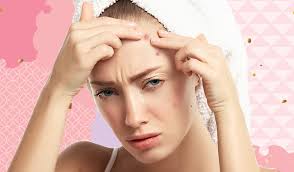Acne is a common skin condition that affects millions of people worldwide, characterized by pimples, blackheads, whiteheads, cysts, and nodules. It occurs when hair follicles become clogged with oil and dead skin cells, leading to inflammation and often resulting in various types of lesions on the skin. This blog explores the causes, treatments, and preventive measures for acne, aiming to provide a comprehensive understanding and practical advice for managing this condition effectively. Acnesol A Nano Gel is a combination of two medicines that effectively treats acne.
Causes of Acne:
Acne develops due to several interconnected factors involving the skin’s oil production, bacteria, hormones, and inflammation:
-
Excess Sebum Production: Sebaceous glands in the skin produce an oily substance called sebum. Excessive sebum production can lead to clogged pores and acne lesions. Clindamycin For Acne minimizes oil production and helps to reduce inflammation.
-
Clogged Pores: When dead skin cells and sebum accumulate in hair follicles, they can form a plug, creating an ideal environment for acne-causing bacteria.
-
Bacteria: Propionibacterium acnes (P. acnes) is a type of bacteria that thrives in clogged pores, contributing to inflammation and acne lesion formation.
-
Hormonal Changes: Hormonal fluctuations during puberty, menstruation, pregnancy, or hormonal disorders can increase sebum production, making individuals more prone to acne.
-
Genetics: Family history plays a role in acne development. If your parents had acne, you may be more likely to develop it too.
-
Dietary Factors: Some studies suggest that diets high in refined sugars and carbohydrates may exacerbate acne, although more research is needed to establish clear links.
Common Types of Acne Lesions:
-
Whiteheads: Closed comedones that appear as small, white bumps under the skin surface.
-
Blackheads: Open comedones that are dark in color due to oxidation of melanin.
-
Papules: Small, red, tender bumps caused by inflammation.
-
Pustules: Pimples filled with pus, characterized by white or yellow centers.
-
Nodules: Large, painful, solid lesions beneath the skin’s surface.
-
Cysts: Deep, pus-filled lesions that can cause pain and scarring.
Treatment Options for Acne:
Effective acne treatment aims to reduce sebum production, unclog pores, kill bacteria, and reduce inflammation. Treatment options vary depending on the severity and type of acne:
-
Topical Treatments:
- Benzoyl Peroxide: Kills acne-causing bacteria and reduces inflammation. Available in gels, creams, and washes.
- Retinoids: Derived from vitamin A, retinoids (such as tretinoin and adapalene) help unclog pores and promote cell turnover.
- Topical Antibiotics: Clindamycin and erythromycin can reduce acne-causing bacteria and inflammation when applied directly to the skin.
-
Oral Medications:
- Antibiotics: Oral antibiotics like doxycycline or minocycline are used to reduce inflammation and kill bacteria. They are often prescribed for moderate to severe acne.
- Oral Contraceptives: Hormonal birth control pills can help regulate hormones and reduce acne in women by decreasing sebum production.
- Isotretinoin (Accutane): Reserved for severe, cystic acne, isotretinoin is a potent oral medication that reduces sebum production and prevents acne recurrence. It requires careful monitoring due to potential side effects.
-
Procedures and Therapies:
- Chemical Peels: Alpha hydroxy acids (AHAs) or beta hydroxy acids (BHAs) are applied to the skin to exfoliate and unclog pores.
- Laser and Light Therapy: These treatments target acne-causing bacteria and reduce inflammation. They can also help improve acne scars.
- Extraction: Dermatologists may manually remove blackheads and whiteheads using specialized tools during a procedure called extraction.
Prevention Strategies for Acne:
While some factors contributing to acne, such as genetics and hormonal changes, cannot be controlled, adopting healthy skincare habits and lifestyle choices can help prevent acne breakouts:
-
Cleanse Gently: Wash your face twice daily with a gentle cleanser to remove excess oil, dirt, and makeup without stripping the skin.
-
Moisturize: Use a non-comedogenic moisturizer to keep the skin hydrated without clogging pores.
-
Avoid Harsh Products: Avoid abrasive scrubs, harsh cleansers, and excessive scrubbing, which can irritate the skin and worsen acne.
-
Use Oil-Free and Non-Comedogenic Products: Choose makeup, sunscreen, and skincare products labeled as oil-free and non-comedogenic to minimize pore clogging.
-
Hands Off: Avoid touching your face or picking at acne lesions, as this can spread bacteria and lead to further inflammation and scarring.
-
Manage Stress: Stress can worsen acne. Practice stress-reduction techniques such as yoga, meditation, or exercise to help manage stress levels.
-
Healthy Diet: While more research is needed, some evidence suggests that a balanced diet rich in fruits, vegetables, whole grains, and lean proteins may help reduce acne severity.
-
Regular Exercise: Exercise improves circulation and helps reduce stress, which may contribute to clearer skin.
Conclusion:
Acne is a common skin condition that affects individuals of all ages and can have significant physical and emotional impacts. Effective treatment involves a personalized approach based on the type and severity of acne, as well as individual skin characteristics and medical history. Dermatologists can provide guidance on suitable treatments and skincare routines to manage acne effectively and minimize potential side effects. By understanding the causes of acne and adopting preventive measures and appropriate treatments, individuals can achieve clearer, healthier skin and improved self-confidence. If you’re struggling with acne, consult with a healthcare professional or dermatologist for personalized advice and treatment options tailored to your needs. Early intervention and consistent skincare practices are key to managing acne and maintaining skin health in the long term.

